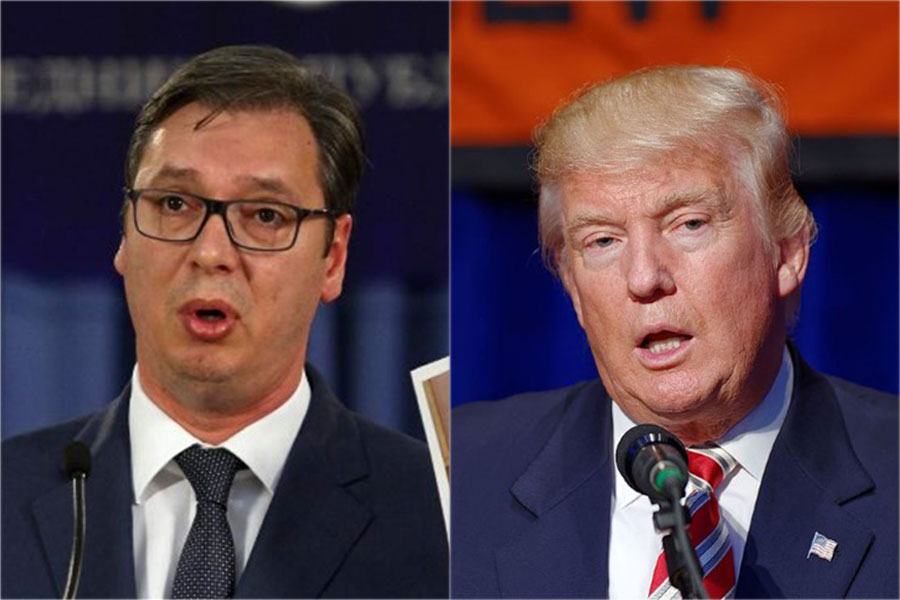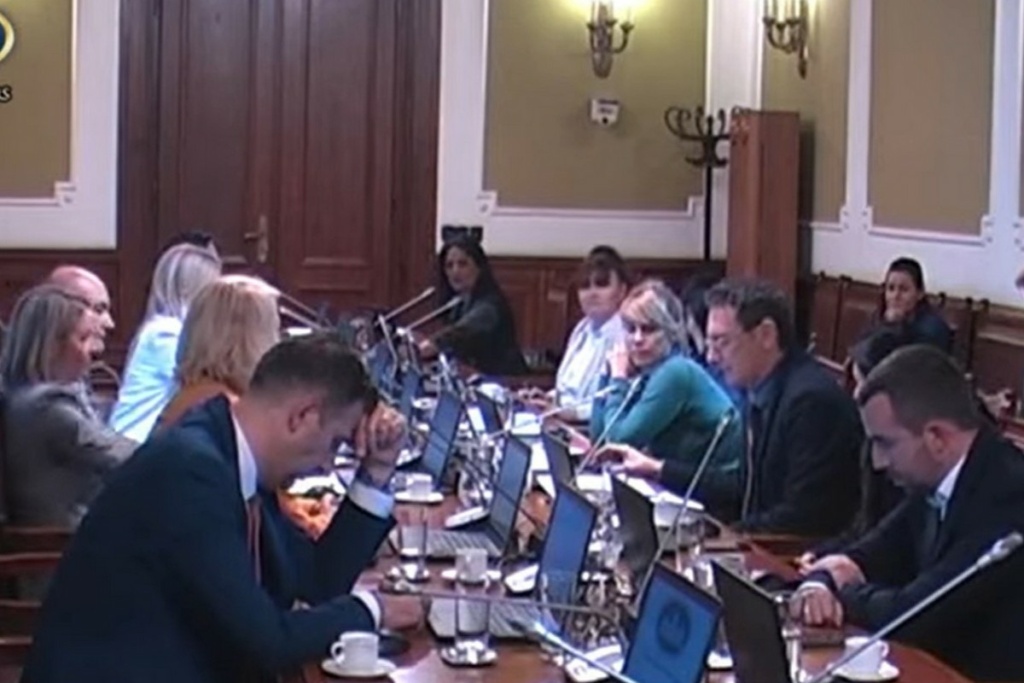
Photo: Sandra Coliver, personal archives
Among other things, the First Amendment to the Constitution of the United States prevents the government from making laws which abridge the freedom of speech and the freedom of the press.
The Founding Fathers did not want for citizens of the future state to be afraid to speak their mind, especially concerning the authorities. Thus, the freedom of speech, which is guaranteed by the First Amendment prevents the federal government to sanction speech, and it guarantees the freedom to publish information and opinions.
In the U.S. during the Trump administration, there is an increase in hate speech and violence. We should look to sociology to see if there is causality.
The First Amendment and ways that freedoms of media and expression are understood in the U.S. Europe and the rest of the World were some of the topics discussed with Sandra Coliver. Coliver is the senior managing legal officer for civic space with the Open Society Justice Initiative, based in New York and a world-renowned expert for freedom of media and expression.
Cenzolovka: The United States is in a unique position when it comes to freedoms of speech and expression. It has the First Amendment with its broad protections, and it has a strong and, for the most part, independent judicial system. The First Amendment has long been a fascination, and some would argue aspiration of most of the rest of the World.
Coliver: The First Amendment states that Congress shall make no laws that interfere with freedom of speech or of the press. It is very simple. Unlike in most countries, including those of the European Union, in the United States, there is a right to advocate ideas and actions even if they are unlawful actions, so long as the advocacy is not intended, and is not likely, to incite imminent lawless action. While a person may be removed from a classroom or fired from employment for engaging in hate speech, a person may be charged with a crime only if he or she intends to intimidate someone or intends to encourage violence or other lawless action under circumstances where such unlawful action is likely to happen imminently.
Members of the Nazi party or the Ku Klux Klan are allowed to march as long as they are not committing violence
Cenzolovka: Could you please give us an example?
Coliver: The classic case is that of a Vietnam War protestor, a university student, who yelled at a rally “we’ll take the f—-ing street again.” The Supreme Court ruled that, while he advocated unlawful action, it was only at some indefinite time, and therefore it was unlikely that his words – even though profane — would lead to violence. If the speaker had said “Let’s take the streets now!”, and had called on thousands of people to follow him as he confronted the police, that would be considered unlawful, and he could be arrested. The reason behind protecting speech, however inflammatory, that does not intend, and is unlikely, to cause imminent lawless action is that powerless people often use offensive or exaggerated speech because that is all that they have.
Cenzolovka: Similarly, Ku Klux Klan is not prohibited from marching?
People who support the American approach will say that we have less hatred and violent racism in the U.S. than in most parts of Europe. Germany, France, England — countries where it is possible to arrest a person for hate speech –there is now even more hatred against Muslims and immigrants than there was 10 years ago.
Coliver: That is right. The U.S. Supreme Court has said that if they are just marching, even if they are wearing symbols of KKK, that is permissible. But if they burn a cross on an individual’s property, and it is proved that they intended to intimidate that person, then that is a crime, and they can be arrested. On the other hand, if they burned a cross on public land, they would be convicted only if it could be proved that they intended to intimidate particular people.
Cenzolovka: In the last couple of years, Neo-Nazis have been seen marching in rallies across the U.S. Also, there was a recent case in a Boston suburb of a man hanging a Nazi flag. I assume that is similar to Vietnam War protestors, and the Klan. Nazi speech is protected too?
Coliver: It is similar. In the U.S., flying the Nazi flag, wearing the Nazi insignia, marching — all of that is protected, symbolic speech. And it is protected even if the marchers intend to cause fear as long as they do not intend, and are not likely, to cause violence, and any people who might be intimidated are able to withdraw. If the Nazis march in a public square, that is considered to be permissible. They can be hateful, everybody could understand their symbols, but everyone who is offended can withdraw.
If the members of the KKK burn a cross on public land, they would be convicted only if it could be proved that they intended to intimidate particular people.
Cenzolovka: And what about if they march through a Jewish neighborhood?
Coliver: That is what the Nazis wanted to do in a famous case that reached the Supreme Court in 1977. They wanted to march through a neighborhood in Skokie, Illinois where a lot of survivors of the Holocaust lived, in order to protest, and call attention to, a local ordinance that they felt unjustly limited their rights. The Supreme Court decided the case on a narrow procedural ground. The Court ruled that the Illinois courts had erred in upholding the mayor’s decision to deny the Nazis a permit to march without giving them a full right to appeal. In the end, the Nazis never marched through Skokie, but instead held a march in Chicago – after they agreed to terms set by the police. Only about 50 Nazis showed up.
The idea behind the Supreme Court’s reasoning is that the fact that people may be offended or even feel intimidated is not a sufficient reason to limit the rights of protesters. The Skokie decision was very controversial even among liberals. But the argument in favor of it was that if we present the Nazis from marching, then other protesters can be stopped. What if Black Lives Matter activists want Muslims in New to protest police violence by marching through neighborhoods where white people live? What if Muslims in York City want to claim their rights in the square in front of their mosque – which just happens to be near the site of the 9-11 tragedy?
THE BALKANS IS DANGEROUS FOR JOURNALISTS
Coliver: There is so much human potential in the Balkans. But because of that, it is even more disappointing that attacks against journalists are increasing. I lived in Sarajevo from 1996 to 98, right after the end of the war and the Dayton agreement. People recalled the 1984 Olympics as marking such a time of progress, optimism and pride in their country. – I hope that that torch may shine again sometime. But now, the region is full of despair and a dangerous place for journalists and human rights advocates.
More freedom – less hatred and violence
Cenzolovka: Germany has a famous law against Holocaust denial. Which system is better? The European standards or freedom of speech as it is understood in America?
Coliver: The European model has worked well enough in most countries of the EU. In general, there is a confidence that governments would not put people in jail for denying a historical fact, although there is that possibility under the law. On the other hand, such laws have been abused a lot in Russia, Azerbaijan, and Turkey. The laws are ok as long as there is a constitutional framework and independent courts that protect free speech.
People who support the American approach will say that we have less hatred and violent racism in the U.S. than in most parts of Europe. Germany, France, England — countries where it is possible to arrest a person for hate speech –there is now even more hatred against Muslims and immigrants than there was 10 years ago, and probably more than there is in the U.S. Before Trump took over the presidency, there was very little violent anti-Semitism in the U.S., very little violence against immigrants and LGBT people, although there were a few horrific incidents because it is so easy in the US to get high-powered guns. Now, in the U.S. during the Trump administration, there is an increase in hate speech and violence. We should look to sociology to see if there is causality. The argument could be made that the system right now is out of balance; that our tradition of tolerance doesn’t quite know what to do with this new situation where the President makes statements that are inflammatory, racist, and suggests that he condones violence, for instance when he offered to pay for lawyers to defend anyone who got arrested for attacking a protester at one of his rallies.
People who disrespect leaders are protected
Cenzolovka: How would you describe President Trump’s speech? He said, for instance, that media is the enemy of the people.
Coliver: Using terms such as “enemy of the people,” suggesting that journalists are traitors and even spies, those are very serious accusations. I suppose that the reason he is not being prosecuted is that there are no individual targets, his statements are pretty general. It is very difficult in the U.S. context to think about a statement that the president could make that would subject him to criminal action, also because of the immunity the president enjoys. Sometimes he just makes things up. Fake news – that also is protected speech in the US.
While a person may be removed from a classroom or fired from employment for engaging in hate speech, a person may be charged with a crime only if he or she intends to intimidate someone or intends to encourage violence or other lawless action under circumstances where such unlawful action is likely to happen imminently.
Cenzolovka: The European standard would say that advocacy is permissible as long as it doesn’t incite to violence, hatred, and discrimination. So, how would you assess a statement that people of a certain region are criminals, that they steal things and that we should do whatever we can to get them to return to wherever they came from, that was made by, at the time, presidential candidate Trump?
Coliver: That kind of statement is tolerated in the United States. It may cause hatred, but if it is not likely to cause the audience to commit violence against these people, then it is tolerated. Whereas, in Europe, it would be permissible to arrest someone who makes very hateful statements.
Cenzolovka: In early 2000, I remember watching Jon Stewart repeatedly comparing then President George W. Bush to a monkey and reflexively expecting that he will be arrested. Coming from Yugoslavia, for me, that was an inconceivable type of liberty. Even today, many countries, including some in the E.U., have laws prohibiting that kind of speech against the president.
Coliver: There is a long tradition of political satire here, as well as an understanding that political officials have to tolerate that kind of humor and scrutiny. Disrespecting leaders will always be protected, and I think that is very positive.
Second part of the interview with Sandra Coliver „Assange Shouldn’t Stand Trial in the United States; Snowden is a Hero“ can be read HERE
Please find the original version of this article, written in Serbian, on this LINK.








 Vučić i Tramp: Netrpeljivost prema medijima i podrugljivo odbacivanje drugačijeg mišljenja
Vučić i Tramp: Netrpeljivost prema medijima i podrugljivo odbacivanje drugačijeg mišljenja Medijski amandmani umiru u skupštinskom mraku: Noćno zasedanje Odbora, u četiri čina
Medijski amandmani umiru u skupštinskom mraku: Noćno zasedanje Odbora, u četiri čina Silovanje ili cenzura: Na šta to smrdi Pepe le Tvor?
Silovanje ili cenzura: Na šta to smrdi Pepe le Tvor?
Ostavljanje komentara je privremeno obustavljeno iz tehničkih razloga. Hvala na razumevanju.